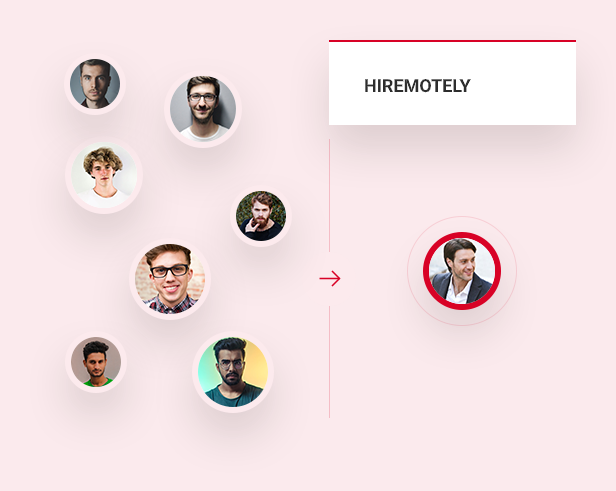Remote Teams & Having A Game Plan with Michael Devellano
In 2019, the world began to look at remote work as the new normal, but Michael Devellano had been working remotely for decades. An entrepreneur with technical knowledge, Devellano came into the workforce just as mobile technology started its exponential growth.
Self described as, “Not a developer, but I know enough to be dangerous,” Devellano was an early adopter of mobile phones and the IoT world when the job was designing and implementing field and sales automation with only, “scotch tape and glue.”
The release of iPhone and Android platforms changed the game as there was suddenly a true platform to build real-world mobile applications and Devellano began helping entrepreneurs build their SaaS and mobile applications.

Coming from the wireless industry, Devellano and his team were always remote. In the early 2000–2010s , the cultural expectation was that you go into the office Monday through Friday, 9am to 5pm. Yet in the wireless industry, when you went into the office during working hours, no one was there.
He jokes about how empty offices are “freaking people out nowadays” when he personally never saw a problem, “If you wanted to get in touch with someone, you would just call them or text them or message them on Blackberry. Everyone when they needed someone could get a hold of them.”
Today Blackberry may not be everyone’s first choice for connecting with their coworkers, but technology has adapted to our needs. We have email, slack, zoom, google meets… the list is endless in the ways you can communicate with your coworkers and clients. Devellano finds the humor in this, quipping, “Glad everyone figured out what zoom is. We are very happy to have you.”
So how do new entrants to remote and mobile work adapt? For startups and entrepreneurs he suggests; “Focus on how you want to work, get people on board with that. Focus as a leader is on team building and prioritizing people over the tech.” His belief that when people care about what they are creating, they don’t need to be policed is a refreshing take on traditional management. He reminds us that people often go into the office because they feel guilty. That type of environment minimizes your job, your role, your output. You go in, sit at your desk, for a designated time, looking busy. As Devellano divulges, “In remote work, you can’t rely upon just looking like you are getting something done.”

The question then arises: how do you get the most out of your team so that they aren’t idle, wondering what to do next or just clocking in hours? To avoid a lack of productivity, he prefers to partner and team up with people as opposed to employing them because it “holds them more accountable and gives them location and time independence.” He suggests avoiding “the world where you just get a checkmark for showing up.” When you create a team, everyone feels valuable and wants to win. It is a real relationship compared to the, “caste system of a desk.”
In regards to the idea that employees are just clocking in for hours without creating solid work when they are working remotely, Devellano goes back to the point of relationships asking us to, “Imagine a relationship where you are always keeping score. Offices and non remote work are like that.” Constantly focusing on a quid pro quo relationship with hourly pay creates that dynamic where you are keeping score and feeling owed, “Did you put in the time?” It’s not an environment many people feel appreciated in. While hourly work is easy to measure, it is not a holistic view of the value of an individual’s output.
His focus on teamwork and delivering on final outputs creates that ideal where, “if you are independent enough, then you get away from box checking and feel good about what you are doing.” This type of work may not be for everyone. He acknowledges that it requires a different mindset as you are always accessible. By adapting new skills and setting boundaries, Devellano believes that, “in the end, everyone is going to win.” This is evident in his decades of success.
Devellano’s, “not shocked that a lot of the studies are saying that people are getting more done” while working from home these past two years. His team has always moved fast and are responsive because they aren’t tied to something else. They are efficient at getting the root of the problems in app development in a way a traditional company would not be. He believes that, “Nostalgia is your enemy” when it comes to running a startup. Like sharks, we all need to keep swimming forward.
Building a great remote team where everyone is productive and appreciated is only half the battle when it comes to a successful startup. The other half is the game plan. The game plan is where automation and technology can turn a regular business into a successful, growing company. It begins again with prioritizing people.
Devellano’s game plan always starts with asking the right questions. Perhaps the most important one is: “If I was the customer, what would I want to see?” Kicking off with the user experience has been step one for Devellano and his team. In his book, Automate and Grow, he shares his thinking and methodology of successfully delivering great products. In the book, he references other successful companies like Apple where the focus was always on user experience. He emphasizes the point that, “Before you buy or build technology, you need a plan.”
Taking it step by step, Devellano has a method to his success. He has a lot of frustrations when it comes to startups and their apps. He’s gotten sick of building people’s apps and tools, and then not seeing it used properly. In early stage development he sees a lot of problems, most notoriously: building the wrong thing, building it wrong, and selling it to the wrong audience.
When he stepped out on his own, he made sure that wouldn’t happen with his products. He cautions us that, with the plethora of technology available to assist business today,
“Everyone is going out buying or building based on a shiny thing or a painful thing. Take a step back and focus on the game plan.”
He adamantly states that the developer is the last guy that you need for your team, reminding us that, “People build Swiss army knives before they figure out if they should be building anything at all.”
When it comes to setting up your game plan, he quotes Stephen Covey’s concept Habit Two: Beginning with The End in Mind:
“To begin with the end in mind means to start with a clear understanding of your destination. It means to know where you’re going so that you better understand where you are now and so that the steps you take are always in the right direction.”
Whether you are building a business, a project, an app, or a team, you need to have the end in mind. To get there, you ask questions.
A great starting point is finding out what you are trying to solve for. When Devellano is advising for his company, The Founders Pack, he asks entrepreneurs to answer the following questions:
- What is the context of “x”
- What do you do/How can you define it?
- How do you turn that into a digital product?
- Who is gonna buy that thing?
- Where are they hanging out?
- What questions are they asking?
- How do they find me?
- How do I get their attention?
If a startup he is working with can’t answer those questions, he sends them back to the drawing board. If they can, they can move on to the next step in the game plan: Creating playbooks. These need to include all areas of the company. Start with marketing, sales, development, and a Customer Success Roadmap. Then have a tech plan underneath it all. Once your playbooks are set, companies can use the beauty of technology to improve upon it and automate it into the 21st century. Robots are our friends if we can use them properly.
Automation again begins with thinking of people first. Devellano quotes Dan Sullivan’s advice when it comes to automation: “Every 90 days make three lists: A.) What annoys you as an entrepreneur, B.) Repetitive but important tasks that are chewing up your time, C.) What really motivates and inspires you. Automate or Outsource the B list and focus your time on the C list.” This strategy usually looks like building digital products and automating marketing, sales, and support.
Automation is a great tool and one that most companies should be utilizing. By thinking of people first, Devellano asks us to think of the customer by asking questions: Can they buy your product on their own immediately? If they can’t, does it involve speaking or working with a person? Should it involve a person at all? When asked if automation can or is able to replace all human interaction, Devellano was clear in his answer: Yes, if there is a plan for it.
Devellano asks us, ““If you really want to replace that human, are you documenting and codifying what that human is doing?” If you can say yes, then by all means go ahead and automate, but you need a structure first. He gave a great analogy of selling eggs:
Every egg salesman wants to sell their eggs, but before they can get to the market, they need to design the carton to carry them. If you don’t design the carton well, your eggs will never be sold. This is the same in app development. If the structure is not there, the product can’t be sold effectively. You can’t carry the eggs in your pocket to the market in the hopes they don’t break. Make a plan, design it well, support your team, and your eggs will be in high demand.
When it comes to designing that carton (or app), Devellanos main piece of advice is that, “The answer has never been more features.”
When a company focuses on people, both in building solid remote teams and designing a game plan that is user experience focused, the result is employees that feel valued and are able to produce their best work and a product that is enjoyable to use and profitable in the long run. Michael Devellanos focuses on remote work and a game plan shows the world how technology and people can go hand in hand in a way that everyone wins.




